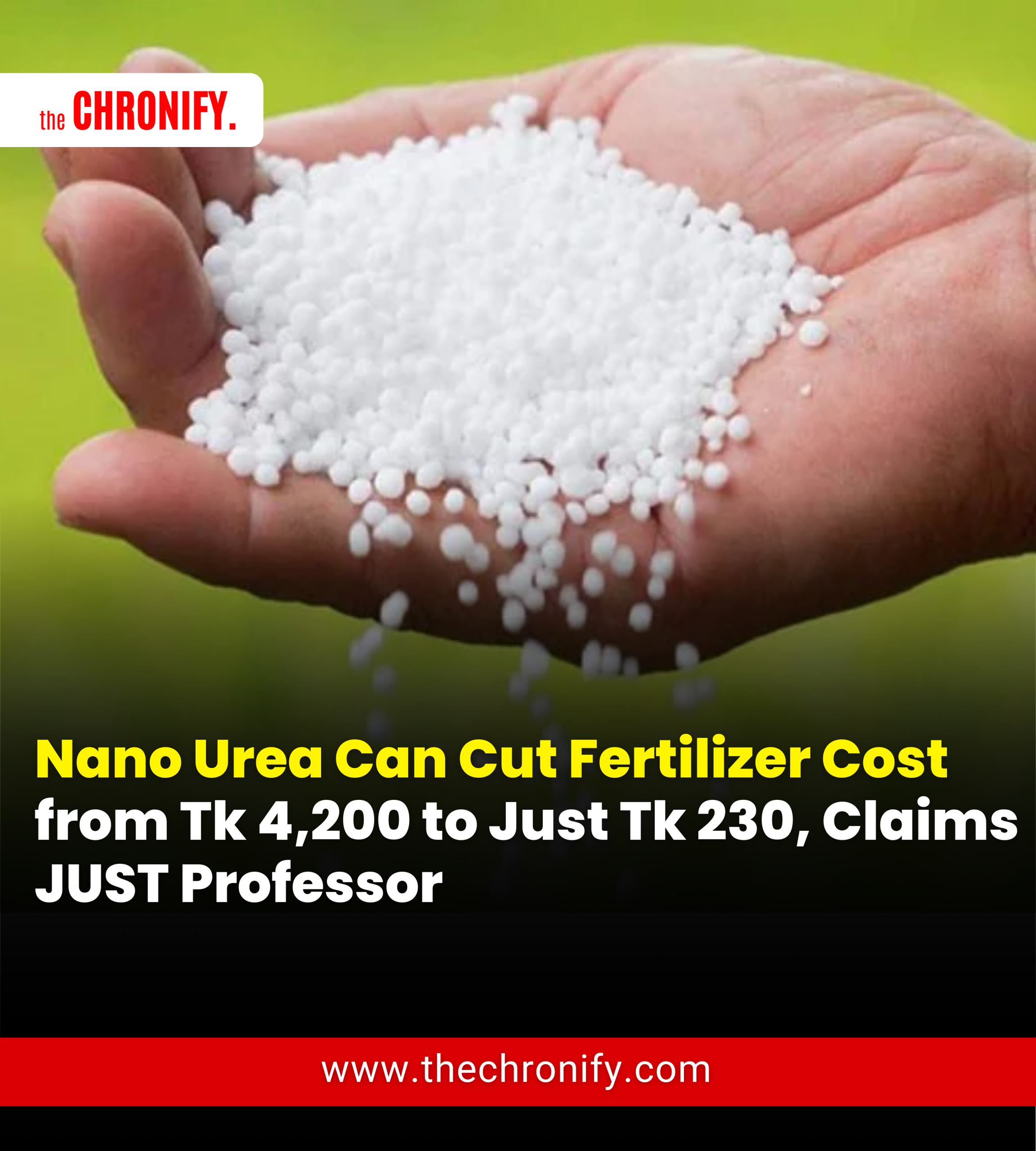Nano Urea Innovation Promises to Slash Fertilizer Costs and Preserve Soil Health in Bangladesh
The use of nano urea in agriculture could drastically cut crop production costs, according to a professor at Jessore University of Science and Technology (JUST) who developed the innovative fertilizer. He claims that, compared to conventional urea fertilizer which costs around Tk 4,200 per bag, nano urea could bring the cost down to just Tk 230.
Entrepreneurs involved in the project say the benefits go beyond cost savings. With successful trials at the research level, they believe nano urea has the potential to protect soil fertility while reducing dependence on imported chemical fertilizers. Agricultural experts are calling for a long-term government strategy to support the adoption of this technology.
Bangladesh produces nearly 60 million tonnes of rice annually to meet its staple food demand. To achieve this, around 3 million tonnes of urea are used on farmland every year—80% of which is imported. This not only increases foreign exchange expenditure but also deteriorates soil quality due to excessive chemical use.
Nano urea could be the answer, suggests Professor Dr. Zabeed Hossain Khan, the lead researcher and inventor of the nano fertilizer. “The government currently imports a bag of urea at Tk 90–92 per kilogram, which totals around Tk 4,200. But with nano urea, the fertilizer cost per bigha (a local land measurement) would be only Tk 230,” he said. The application process involves spraying the solution with special equipment.
Dr. Khan added that the product has already passed several trials in the United States, and field-level tests are underway in Sherpur upazila of Bogura. “Over the past seven years, multiple research institutions in the US have published papers on this innovation, and it has received approvals there. A Minnesota-based company has shown interest in adopting this Bangladeshi technology, which is patented under my name,” he stated.
Industry players also highlight the dual benefits of this innovation—lower production costs and better soil conservation. Md. Sultan Mahmud, Head of Operations (Seeds) at National Agricare Group, noted that they are working under an academia-industry partnership with JUST to advance the technology.
Agricultural scientists emphasize the need for direct government involvement to scale up commercial use of nano technology in farming. Dr. Md. Sadrul Amin stressed, “This technology is being used worldwide. To bring it into wider use in Bangladesh, we need more research and robust government support.”
Experts believe that increasing the use of nano urea in place of traditional fertilizer could reduce production costs by at least 50%.
To put things in perspective, Bangladesh spent over Tk 7,169 crore last year to import 1.62 million tonnes of urea.

